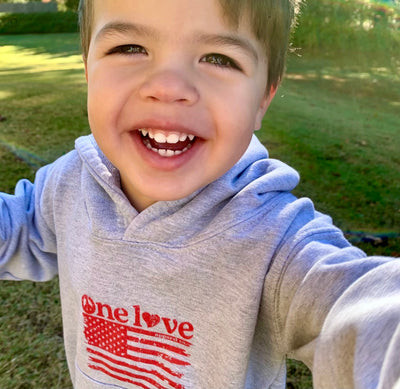From Awareness to Advocacy: How You Can Be a Mental Health Ally This Suicide Prevention Month

Every year, September brings Suicide Prevention Month to the forefront, a critical time for raising awareness about the devastating impacts of suicide and the importance of mental health care. Yet awareness, while vital, is only the first step. True change comes when awareness evolves into advocacy.
This September, we invite you to take an active role in supporting suicide prevention efforts and becoming a mental health ally. Here’s how you can transform awareness into meaningful advocacy.
1. Understand the Importance of Mental Health Advocacy
Advocacy is about more than just sharing information—it’s about action. Mental health advocacy means actively supporting those who struggle with mental health challenges and working to break down the barriers that prevent them from seeking help. Whether it’s challenging harmful stigmas, influencing policy, or simply being a supportive friend, advocacy is crucial in fostering a culture of compassion, understanding, and support.
Suicide Prevention Month is an ideal time to start or deepen your advocacy journey. By moving beyond awareness and actively engaging in solutions, you can play a part in saving lives and improving mental health outcomes for all.
2. Start with Yourself: Cultivate Awareness and Empathy
Before advocating for others, it’s essential to cultivate a deep understanding of mental health issues and the factors contributing to suicide. Suicide is complex, and no single cause or solution applies to every situation. It’s important to educate yourself about risk factors like depression, trauma, substance abuse, and social isolation. Understanding the warning signs, such as withdrawal, changes in behavior, or expressions of hopelessness, equips you to respond compassionately to those in need.
Empathy is equally important. Acknowledging that everyone’s experience with mental health is unique and valid helps dismantle judgment and promotes open, supportive dialogue. By working to understand mental health challenges, you lay the groundwork for meaningful advocacy in your community.
3. Support Mental Health Initiatives and Charities
One of the most direct ways to move from awareness to advocacy is by supporting organizations that are actively working to prevent suicide and improve mental health care. Many nonprofits, local and national, provide critical resources, from crisis hotlines to counseling services to policy advocacy.
Consider donating to or volunteering with organizations such as the National Suicide Prevention Lifeline, the American Foundation for Suicide Prevention (AFSP), or other local mental health charities. These groups rely on public support to fund research, run programs, and provide the immediate assistance that saves lives.
In addition to financial contributions, volunteering your time can make a significant impact. Whether it’s staffing a helpline, helping organize fundraising events, or assisting with community outreach, your efforts can support the critical work being done to prevent suicide and promote mental health.
4. Engage in Community Events and Suicide Prevention Walks
Many organizations host events in September to raise awareness about suicide prevention and offer a platform for advocates to come together. Community walks, like the AFSP’s “Out of the Darkness” walks, are powerful tools for both raising funds and fostering solidarity among those affected by suicide. Participating in these events not only helps raise awareness, but it also sends a strong message of support to those who are struggling and to those who have lost loved ones to suicide.
By attending or organizing local events, you amplify the message of hope and healing. Sharing your experience through walks, virtual campaigns, or other public events helps destigmatize mental health challenges, making it easier for people to seek help when they need it.
5. Advocate for Mental Health Policy Changes
While community involvement is vital, systemic change is just as necessary in improving mental health care and suicide prevention. Mental health advocacy extends beyond individual support to influencing public policy that impacts mental health resources and suicide prevention programs.
You can advocate for better mental health policies by contacting local legislators, signing petitions, and supporting bills aimed at expanding mental health care access and funding. Many parts of the world still lack comprehensive mental health services, and too many individuals are left without the care they need. By pushing for stronger mental health care policies—such as increased funding for mental health services, better insurance coverage for mental health treatments, and training for first responders—you can help create a world where seeking mental health care is easier and more accessible for all.
Several organizations, such as Mental Health America, offer resources on how to get involved in policy advocacy. Whether through letter-writing campaigns, social media outreach, or participating in public forums, your voice can make a difference in pushing mental health legislation forward.
6. Share Mental Health Resources and Normalize Seeking Help
Normalizing conversations around mental health is a powerful form of advocacy. When people feel comfortable discussing their struggles, they are more likely to seek help before reaching a crisis point. You can help by sharing mental health resources, such as helpline numbers, online therapy services, and mental health apps, across your social media platforms or within your community.
Additionally, talking openly about mental health challenges in your own life or in the lives of those you love can break down the stigma surrounding mental illness. This might involve having candid conversations with friends, family, and colleagues about mental health and the importance of seeking help when needed.
By using your platform to share helpful, judgment-free resources and stories, you encourage others to seek support and help create an environment where mental health is treated with the same importance as physical health.
7. Be There for Someone Who May Be Struggling
At the heart of advocacy is human connection. One of the most impactful ways you can advocate for mental health is by simply being there for someone who may be struggling. Listening without judgment, offering support, and checking in regularly can make a profound difference in someone’s life.
If you believe someone you know may be at risk, don’t be afraid to ask them directly how they are feeling. Studies show that asking someone about suicidal thoughts does not increase the likelihood of them acting on those thoughts—in fact, it can provide relief to those who feel isolated. Let them know they are not alone, and encourage them to seek professional help.
Providing nonjudgmental support, whether through listening, encouraging them to talk to a mental health professional, or helping them find resources, can be lifesaving.
8. Final Thoughts: Turning Compassion into Action with One Love Apparel
Suicide Prevention Month serves as a powerful reminder that mental health advocacy is a year-round effort. Moving from awareness to advocacy means taking the next step—becoming actively engaged in preventing suicide, supporting those with mental health struggles, and working to break the stigma surrounding mental health.
At One Love Apparel, we believe in turning compassion into action. By donating to rotating charities that support critical causes like mental health advocacy, suicide prevention, and other social justice issues, we’re proud to make a difference with every purchase. You, too, can join the movement by supporting organizations that provide vital resources for mental health, and by taking part in everyday acts of kindness that uplift those in need.
Together with One Love Apparel, let’s commit to being mental health allies—not just by spreading awareness, but by taking concrete actions that can save lives. Through community involvement, policy advocacy, and supporting charities dedicated to mental health, we can create a world where everyone feels seen, heard, and supported.



